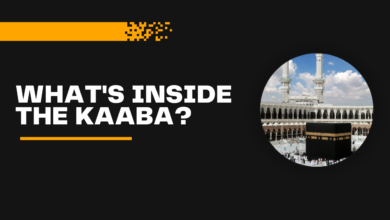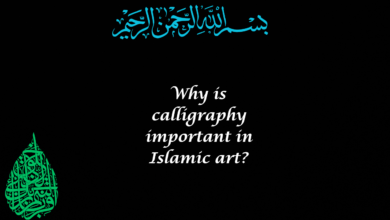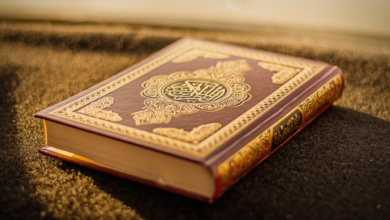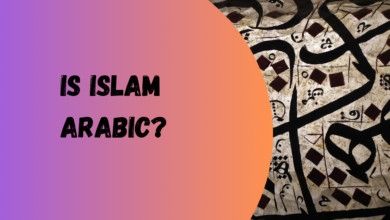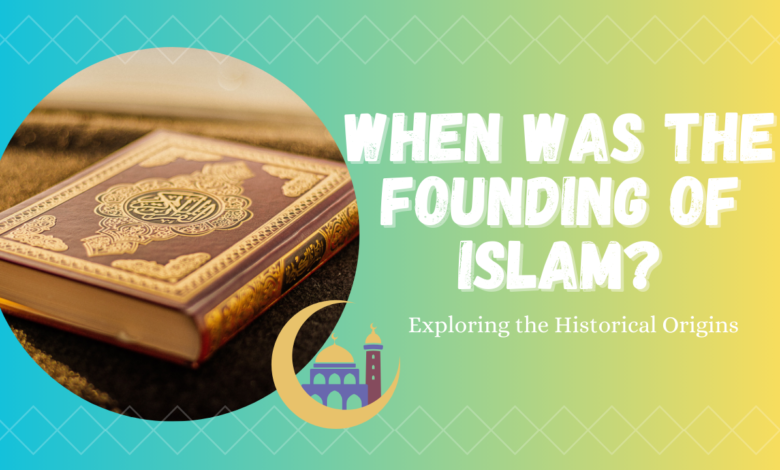
When was the founding of Islam?
Islam was founded in the 7th century CE. The precise date is believed to be around 610 CE when the Prophet Muhammad received his first revelation.

Introduction
The founding of Islam is a pivotal moment in human history, marking the emergence of a new monotheistic faith that has since become one of the world’s major religions. Islam, with its rich history and diverse cultural influences, was not founded in a single moment but rather developed over time through the teachings and actions of its prophet, Muhammad, and the early Muslim community. In this article, we will explore the key events and historical context surrounding the founding of Islam.
The Life of Muhammad
The story of Islam’s founding begins with the life of Muhammad, who is considered the final prophet in a long line of prophets that includes figures like Abraham, Moses, and Jesus in Islamic tradition. Born in Mecca, in present-day Saudi Arabia, around 570 CE, Muhammad grew up as a member of the Quraish tribe, a prominent clan in Mecca.
At the age of 40, Muhammad received his first revelation while meditating in the cave of Hira, located in the mountains surrounding Mecca. The angel Gabriel appeared to him and delivered the first verses of the Quran, the holy book of Islam. These revelations continued over a period of 23 years, during which time Muhammad conveyed God’s message to the people of Mecca and the surrounding regions.
The Quran and Islamic Teachings
The Quran, as revealed to Muhammad, contains the core beliefs and teachings of Islam. It covers a wide range of topics, including monotheism, morality, guidance for personal conduct, and legal principles. The central message of the Quran is the absolute oneness of God (Allah) and the importance of submitting to His will. It also emphasizes social justice, compassion, and the importance of taking care of the less fortunate in society.
The Quran is complemented by the Hadith, a collection of sayings and actions of Muhammad. Together, the Quran and Hadith form the basis of Islamic jurisprudence and provide guidance on both religious and practical matters.
Also Check
- Can you be gay in Islam?
- Where is the place of worship for Islam?
- What is the chief form of Islamic art?
- How many children did Prophet Muhammad (PBUH) have?
- Why did Prophet Muhammad (PUBH) marry Hazrat Khadijah?
The Migration to Medina
As Muhammad’s message gained traction in Mecca, he and his followers faced increasing opposition from the Quraysh, who were deeply invested in the city’s polytheistic traditions and feared the erosion of their power. In 622 CE, Muhammad and his followers, known as Muslims, embarked on a significant journey known as the Hijra, or migration, to the city of Yathrib, which later became known as Medina. This event marks the beginning of the Islamic calendar.
In Medina, Muhammad and the early Muslim community established a religious and political framework that allowed them to thrive. Muhammad acted as both a religious leader and a statesman, resolving disputes among the various tribes and communities in Medina and spreading the message of Islam.
The Expansion of Islam
Over the next decade, Muhammad and his followers faced numerous challenges, including armed conflicts with the Quraysh and other Arabian tribes. Muhammad’s leadership and military campaigns eventually led to the conquest of Mecca in 630 CE. With Mecca’s surrender, the city became the spiritual center of Islam, and the Kaaba, a sacred structure believed to have been built by Abraham and his son Ishmael, was cleansed of its idols and rededicated to the worship of Allah.
Muhammad’s death in 632 CE marked the end of his prophethood, but his legacy and the faith he propagated continued to spread rapidly throughout the Arabian Peninsula and beyond. Under the leadership of his companions and successors, known as the caliphs, Islam expanded to encompass vast territories, including Persia, North Africa, and parts of Europe.
Conclusion
The founding of Islam is a complex and multifaceted historical process that spans the life and teachings of Muhammad, the migration to Medina, and the subsequent expansion of the faith. Islam’s foundation lies in the belief in one God, as articulated in the Quran, and the guidance provided by the Prophet Muhammad. Today, Islam is one of the world’s major religions, with over a billion adherents worldwide, making it a significant force in both the spiritual and cultural landscape of our global community. Understanding the historical context and events surrounding its founding helps us appreciate the enduring impact of this faith.

FAQs about the Founding of Islam
When was Islam founded?
Islam was founded in the 7th century CE. The precise date is believed to be around 610 CE when the Prophet Muhammad received his first revelation.
Who is considered the founder of Islam?
Islam is not attributed to a single individual as its founder. Instead, it is believed to be a continuation and culmination of monotheistic Abrahamic traditions. However, Prophet Muhammad is considered the final messenger and key figure in the spread of Islam.
What were the circumstances surrounding the founding of Islam?
Islam was founded in the Arabian Peninsula, primarily in the city of Mecca. Prophet Muhammad, at the age of 40, began receiving revelations from Allah (God) through the angel Gabriel. These revelations, which would later become the Quran, were received over a period of 23 years.
How did the early followers of Islam grow in number?
Initially, the early followers of Islam, known as Muslims, faced persecution in Mecca. Later, they migrated to Medina in 622 CE, where Islam began to gain followers and establish a community. Through a combination of military conquests, peaceful propagation, and trade, Islam expanded rapidly across the Arabian Peninsula and beyond.
What is the significance of the Hijra (migration to Medina) in Islamic history?
The Hijra, which marks the beginning of the Islamic lunar calendar, is considered a significant event in Islamic history. It symbolizes the transition from a period of persecution in Mecca to a period of growth and establishment in Medina, where the first Muslim community was formed.
When was the Quran compiled and standardized?
The Quran, the holy scripture of Islam, was gradually revealed to Prophet Muhammad over 23 years. After his death in 632 CE, it was compiled into a single written text during the caliphate of Uthman ibn Affan, around 650 CE. This compilation ensured the preservation of the Quran’s text in its original form.
How did Islam spread beyond the Arabian Peninsula?
Islam’s spread beyond Arabia was facilitated through a combination of military conquests, trade, and peaceful missionary efforts. Muslim armies conquered vast territories, including parts of the Byzantine and Sassanian empires. Additionally, the appeal of the Islamic message attracted converts through trade and cultural interactions.
What are the key beliefs of Islam?
Islam is based on the belief in the oneness of God (Allah), the prophethood of Muhammad, and the guidance provided in the Quran. Muslims follow the Five Pillars of Islam, which include the declaration of faith (Shahada), prayer (Salat), fasting during Ramadan (Sawm), almsgiving (Zakat), and pilgrimage to Mecca (Hajj).
What are the major sects within Islam?
The two major sects within Islam are Sunni and Shia. Sunni Muslims make up the majority, while Shia Muslims are the second-largest group. The main difference between them lies in their beliefs about the rightful leadership of the Muslim community after the death of Prophet Muhammad.
Is the founding of Islam a topic of historical debate?
While there is a general consensus on the timeline and key figures associated with the founding of Islam, some historical details and interpretations may vary among scholars. However, the core events and figures remain central to Islamic tradition and belief.
